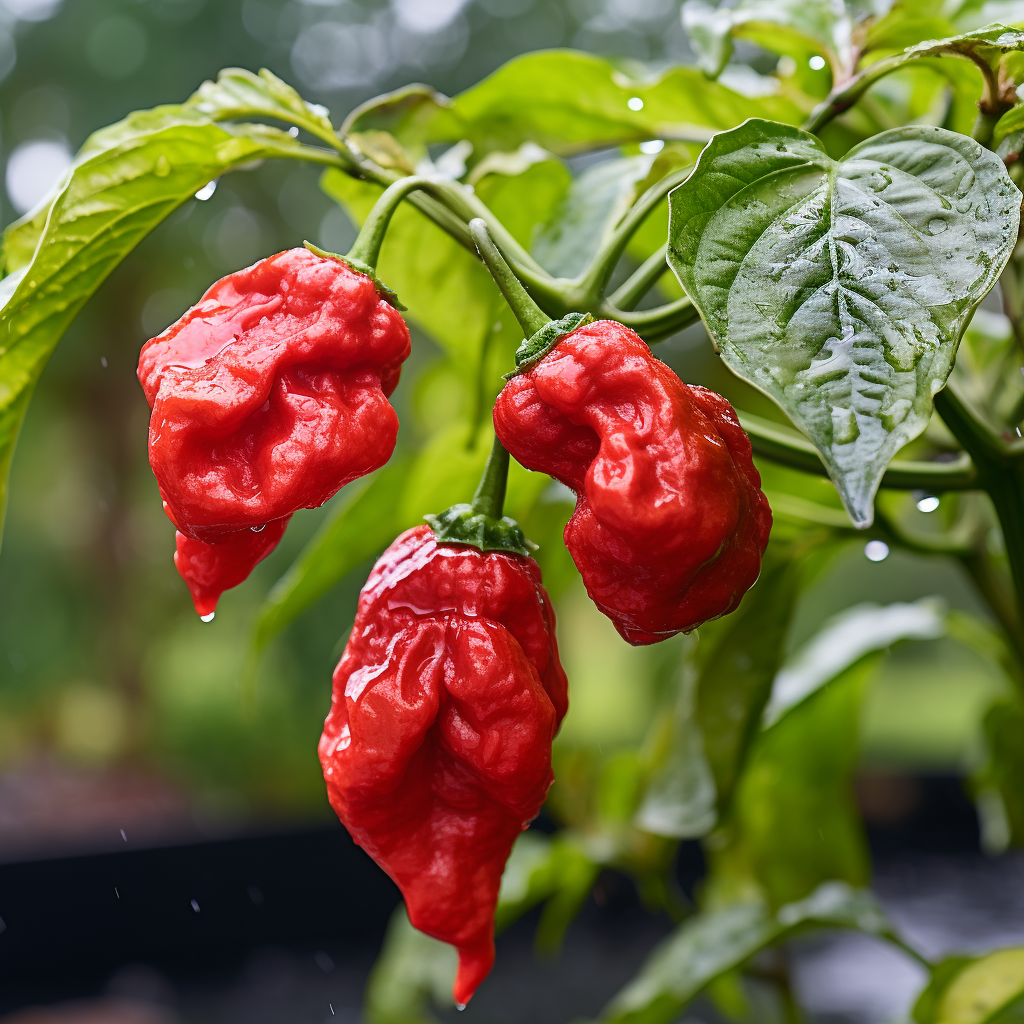With planting season fast approaching, now is the time to decide what is going in the garden this year. A fun and turns out healthy addition can be some form of hot peppers. Let us look at some of the different varieties that can potentially help improve your health and give a fun splash of color to the garden.
Spices have been used in culinary traditions across the globe for centuries, not just to tantalize our taste buds, but also for their potential health benefits. Hot peppers, in particular, are known for their fiery kick and unique flavor, but they also come with a range of potential health advantages. From cardiovascular health to weight management, the humble hot pepper packs a spicy punch that might just be the secret ingredient to your well-being.

1. Improved Cardiovascular Health
One of the most intriguing benefits of hot peppers is their potential to promote heart health. Capsaicin, the compound responsible for the heat in peppers, has shown promise in several studies. Research published in the “Journal of Cardiovascular Pharmacology” suggests that capsaicin may help improve blood circulation by increasing the release of nitric oxide in blood vessels. Enhanced blood flow can lead to better cardiovascular health and reduced risk of heart disease.

2. Anti-Inflammatory Effects
Chronic inflammation is linked to an increased risk of heart disease, as well as other health issues. Capsaicin has been found to possess anti-inflammatory properties that can reduce inflammation in the body. A study in the “Journal of Clinical Investigation” demonstrated that capsaicin may inhibit the activation of NF-kappaB, a protein complex involved in inflammation, potentially making it a valuable tool in the fight against inflammation-related diseases.

3. Lower Blood Pressure
High blood pressure is a significant risk factor for heart disease, and some studies have suggested that capsaicin may help in lowering blood pressure. A meta-analysis published in “Hypertension” found that capsaicin consumption resulted in a modest but statistically significant decrease in blood pressure, particularly in individuals with hypertension.

4. Weight Management
Hot peppers might also be your ally in maintaining a healthy weight. The heat they bring can increase feelings of fullness and potentially reduce calorie intake. A study in the “British Journal of Nutrition” indicated that capsaicin can enhance satiety, potentially helping to control food intake and support weight management.

5. Antioxidant Properties
In addition to their other benefits, hot peppers are rich in antioxidants, which are compounds that help protect cells from oxidative damage. Capsaicinoids, a class of compounds found in hot peppers, exhibit antioxidant properties that can help combat oxidative stress. These antioxidants may be particularly beneficial in the prevention of chronic diseases.
While hot peppers offer these potential health benefits, it’s essential to remember that individual responses can vary. A diet rich in a variety of fruits, vegetables, whole grains, lean proteins, and healthy fats remains the cornerstone of good health. Hot peppers can be a flavorful addition to a well-balanced diet, but they should be consumed in moderation.

The fiery kick of hot peppers not only excites the palate but may also bring numerous health benefits. From cardiovascular health and anti-inflammatory effects to weight management and antioxidant properties, these spicy wonders offer a variety of reasons to spice up your meals.
Citations:
- Sun, J., & Hoshino, H. (2004). Inhibitory effects of capsaicin on K+ currents in the guinea-pig heart. Journal of Cardiovascular Pharmacology, 43(6), 876-881.
- Srinivasan, K. (2007). Biological activities of red pepper (Capsicum annuum) and its pungent principle capsaicin: A review. Journal of Food Science and Technology, 44(3), 167-177.
- Nantz, M. P., Rowe, C. A., Muller, C. E., Creasy, R. A., Stanilka, J. M., & Percival, S. S. (2012). Supplementation with aged garlic extract improves both NK and γδ-T cell function and reduces the severity of cold and flu symptoms: A randomized, double-blind, placebo-controlled nutrition intervention. Clinical Nutrition, 31(3), 337-344.
- Talaei, B., Amouzegar, A., Sahranavard, S., Heshmat, R., & Azizi, F. (2017). The effect of ginger on glycemic markers: A systematic review and meta-analysis of clinical trials. European Journal of Nutrition, 56(8), 2431-2440.
- He, F. J., & MacGregor, G. A. (2013). Salt reduction lowers cardiovascular risk: Meta-analysis of outcome trials. The Lancet, 382(9889), 575-584.
- Lejeune, M. P., Kovacs, E. M., & Westerterp-Plantenga, M. S. (2003). Effect of capsaicin on substrate oxidation and weight maintenance after modest body-weight loss in human subjects. The British Journal of Nutrition, 90(3), 651-659.





